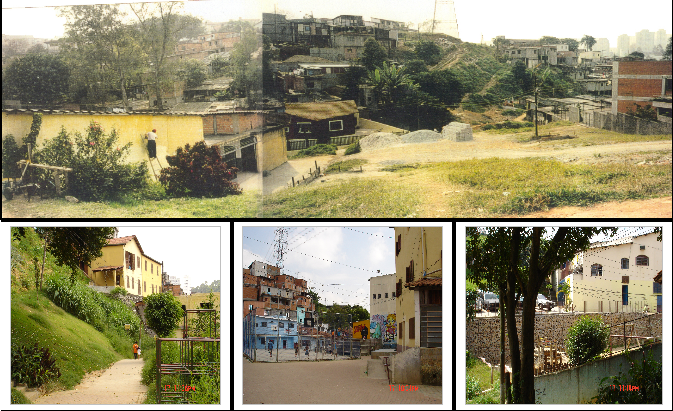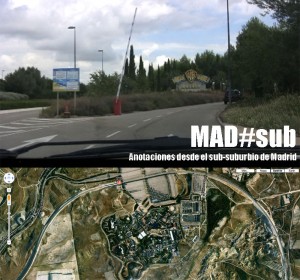
We often have a wrong image of
Brazil's favelas, due to distortions from stereotypes and movies.
Often poverty does not appear in the form of poor hygenic conditions or lack of basic infrastructures. The fact that many organizations, which had been in the opposition during the dictatorship, were recognized publicly and institutionalized in recent times, turned
assistentialism into a system; these groups, now as NGOs, had been carrying out a continuous and financed work during the last decades, that improved many visible aspects of life in poor neighborhoods; but at a price
paid in terms of autonomy and strength of self-organization. Communities turn dependent, exposed and unable to defend themselves.
In Sao Paulo's
Monte Azul, studied by Fabiana Valdoski, a group of German anthroposophists founded the Associação Comunitária Monte Azul, an NGO that monopolized all of the improvement and development of the "favela". When
organized crime began to penetrate Monte Azul, since 2008, the inhabitants were no longer able to prevent it, and the NGO could do nothing about it.

 We often have a wrong image of Brazil's favelas, due to distortions from stereotypes and movies. Often poverty does not appear in the form of poor hygenic conditions or lack of basic infrastructures. The fact that many organizations, which had been in the opposition during the dictatorship, were recognized publicly and institutionalized in recent times, turned assistentialism into a system; these groups, now as NGOs, had been carrying out a continuous and financed work during the last decades, that improved many visible aspects of life in poor neighborhoods; but at a price paid in terms of autonomy and strength of self-organization. Communities turn dependent, exposed and unable to defend themselves.
In Sao Paulo's Monte Azul, studied by Fabiana Valdoski, a group of German anthroposophists founded the Associação Comunitária Monte Azul, an NGO that monopolized all of the improvement and development of the "favela". When organized crime began to penetrate Monte Azul, since 2008, the inhabitants were no longer able to prevent it, and the NGO could do nothing about it.
We often have a wrong image of Brazil's favelas, due to distortions from stereotypes and movies. Often poverty does not appear in the form of poor hygenic conditions or lack of basic infrastructures. The fact that many organizations, which had been in the opposition during the dictatorship, were recognized publicly and institutionalized in recent times, turned assistentialism into a system; these groups, now as NGOs, had been carrying out a continuous and financed work during the last decades, that improved many visible aspects of life in poor neighborhoods; but at a price paid in terms of autonomy and strength of self-organization. Communities turn dependent, exposed and unable to defend themselves.
In Sao Paulo's Monte Azul, studied by Fabiana Valdoski, a group of German anthroposophists founded the Associação Comunitária Monte Azul, an NGO that monopolized all of the improvement and development of the "favela". When organized crime began to penetrate Monte Azul, since 2008, the inhabitants were no longer able to prevent it, and the NGO could do nothing about it. 
